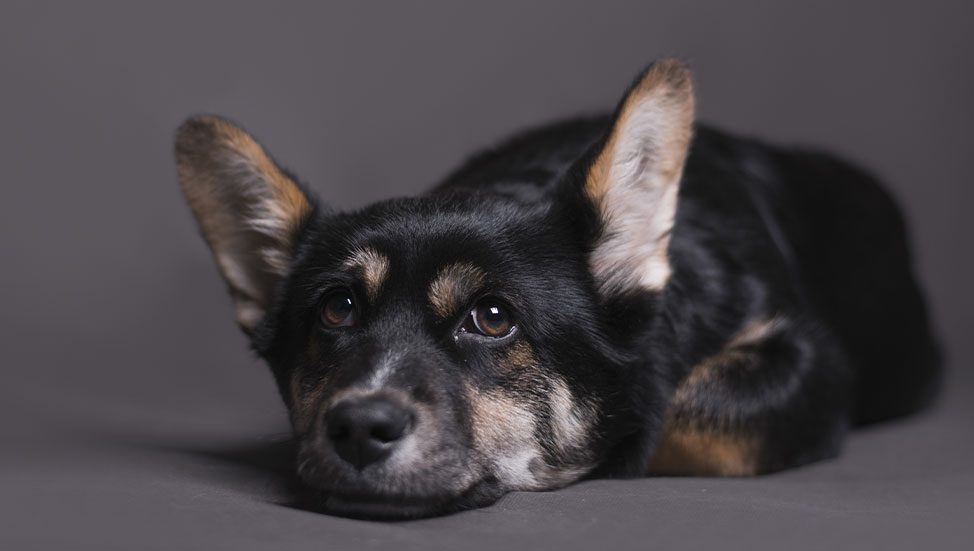Ask Dr. Jenn: Why does my dog make loud sighing, grumbling, and groaning noises?
Does your dog grumble and sigh amidst his or her daily activities? These noises could be due to a number of reasons:

Has your dog been making loud sighing, grumbling, and groaning noises more often than normal? He or she might be communicating a number of things, from feeling comfortable and happy to feeling sick.
If your dog has always made sounds like this when curling up with you, the sighs and groans can be a sign of contentment. He may be telling you “I’m so happy right now.” Or he may be trying to get your attention and guilt trip you into pets, belly rubs and scratches.
In another case, your four-legged friend may just be sleepy. For instance, my dog, Apollo, is a deep sleeper. He’ll whine, growl, and groan in his sleep as if he’s reacting to something in his dreams! Sometimes his feet even twitch and his legs paddle like he’s running wild. That’s when I know it’s a really good dream and it’s best not to wake him. That said, maybe your dog is just off in La La Land, running through a field and chasing rabbits! In this case, there is no need to worry. Let the sleeping dog lie.
In another, more serious scenario, if your dog is a little older or the groaning noises are something new, your dog may be trying to tell you something is wrong. Some dogs will groan, whimper, or sigh as a sign of pain. As dogs age, it is common for them to develop arthritis along the spine and hips. Meaning curling up may suddenly be uncomfortable.
Similarly, if your dog has an upset tummy, it may be made worse when laying down. Like people, dogs can have acid reflux, bloating, or gastric ulcers. So, certain positions may make the stomach pain worse leading to groaning and grumbling.
Other senior dog problems that can lead to an increase in vocalizations are things like cognitive dysfunction syndrome, similar to dementia in people. This syndrome leads to confusion and may cause your dog to become more vocal. In fact, some people have also noted that as dogs age and lose their hearing, they tend to make more noise, whether they are aware of it or not.
If your previously quiet companion is suddenly groaning, changing position frequently, or crying out, a trip to your veterinarian is recommended. Your vet will try to localize the source of pain and recommend treatment options to improve your pet’s comfort level. If he is developing signs of dementia or hearing loss, your vet may be able to recommend some therapies that can help reduce the stress associated with aging.
What Dog Noises Tell Us
All in all, most noises our pets make are their way of trying to communicate with us. If you are not sure what the groan means, watch out for other signs:
- Does he only groan when next to you? It’s probably a sigh of contentment.
- Is this a new noise and he grunts as he tries to jump on the couch? Maybe he is telling you his joints hurt.
- Is he not finishing all the food in his bowl? The groan may mean his tummy hurts.
- Is he wandering around and acting confused? He could be losing his sight or his hearing or even experiencing dementia.
You know your pet best and you will likely be able to decipher what his noises are telling you. But if you need help, your veterinarian is always a good option to help decode what these sounds mean.
Ready to start saving money on pet wellness care?
Then take a look at Mint Wellness, the pet wellness plan that provides fast reimbursement on routine pet care. Save on vaccinations, wellness exams, preventatives, dental, and more!
Learn More


